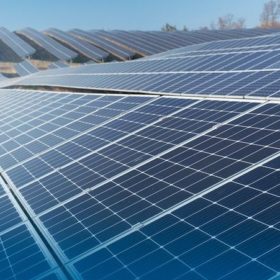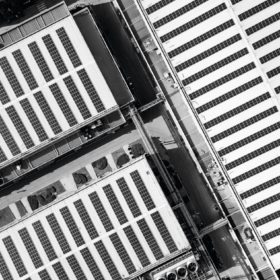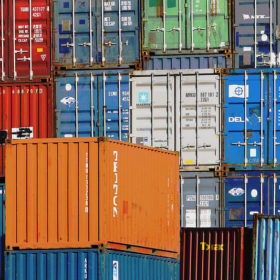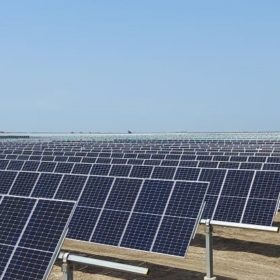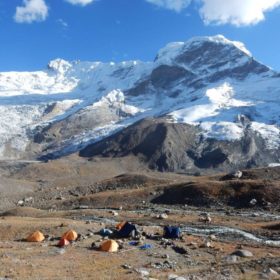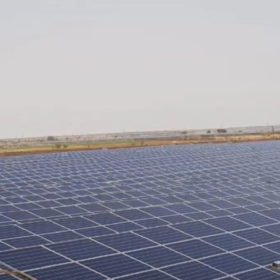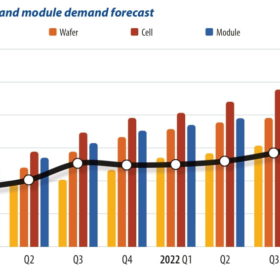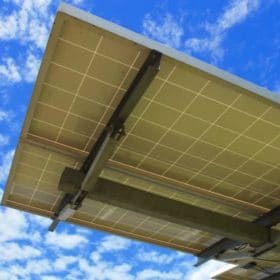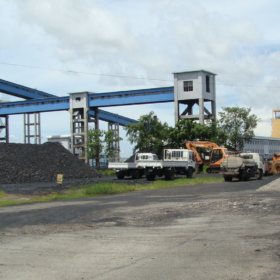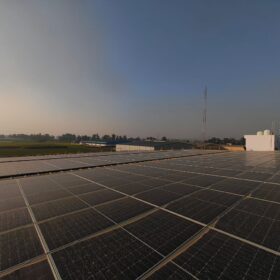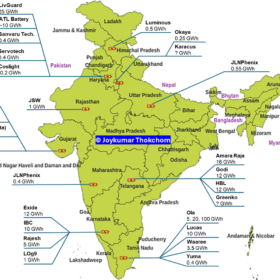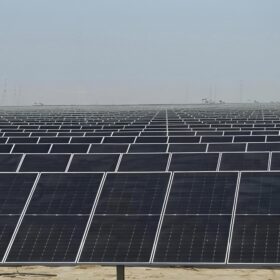Cipla expands captive renewables plants in Maharashtra, Karnataka
Pharmaceutical supplier Cipla says it has started operating an additional 16 MW of capacity at its 30 MW captive solar plant in Maharashtra. It has also switched on a hybrid captive plant in Karnataka, featuring 9 MW of solar and 2.7 MW of wind.
The long read: China’s PV industry reaches new heights
Against all odds, China’s gross domestic product grew by 8.1% in 2021, up 5.8% year on year. Electricity consumption grew by 10.3%, up 7.2%. Taking this into account, it’s no surprise that China’s PV industry also reached new heights. Frank Haugwitz, the founder of the Asia Europe Clean Energy (Solar) Advisory (AECEA), takes a closer look at what is still by far the world’s largest PV market.
Analyst predicts extent of rise in this year’s solar capital costs
Wood Mackenzie this week made a slew of predictions for the industry in 2022 and noted the effects the US’ recently announced anti-circumvention investigation is already having on utility scale plans.
India added 3 GW of solar in the first quarter
The solar capacity addition was led by Rajasthan, which accounted for 52% of 2022’s first quarter PV installations.
Sungrow equips Tata Power battery storage project in Ladakh
Chinese inverter maker Sungrow is supplying its SC2500UD power conversion system and ST2752UX liquid-cooled energy storage system to Tata Power Solar for an integrated battery energy storage project in Ladakh.
Mahindra Susten commissions 175 MW of solar in Rajasthan
Mahindra Susten has switched on 175 MW (AC) of its 250 MW solar project in Bikaner district, Rajasthan. The massive installation, which uses bifacial modules, will supply electricity to Solar Energy Corp. of India over a period of 25 years at a price of INR 2.54 ($0.03)/kWh.
No end to solar supply/demand imbalance
The solar supply chain problems that began last year with high prices and polysilicon shortages are persisting into 2022. But we are already seeing a stark difference from earlier predictions that prices would decline gradually each quarter this year. PV Infolink’s Alan Tu probes the solar market situation and offers insights.
SCCL tenders EPC contract for 22 MW solar plant
SCCL is tendering an engineering, procurement and construction contract for a grid-interactive solar plant at Singareni Collieries Company’s Ramagundam site in Telangana. Bidding closes on June 15.
Greenko starts work on 5.23 GW renewable storage project
Indian developer Greenko has begun construction of a hybrid energy storage project featuring 10.8 GWh of daily pumped storage, 3 GW of solar, and 550 MW of wind. It claims that it might be the world’s largest renewables-based storage project upon completion.
Rising costs weigh on solar deployment in Bangladesh
Rooftop and ground-mounted solar deployment is reportedly slowing down in Bangladesh due to rising prices of panels, inverters, and other PV system components.
